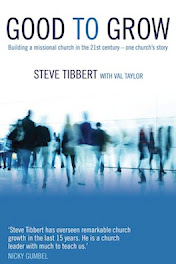Guest blogger Mick Taylor concludes his series on ‘the Last Days’
It is easy to let the debates about different eschatological frameworks obscure the fact that the New Testament writers were convinced that they had already experienced the beginnings of the new creation in Christ’s resurrection. The longed-for Kingdom of God was not just a future expectation but also a reality which broke into our fallen world through the power of the Spirit. That is what inspired them into mission - as it should also motivate us.
We are not just called to plod on with limited resources until Christ returns. Rather, we are called to advance His Kingdom in the world today. When we pray, ‘Your kingdom come, your will be done on earth as it is in heaven’ we should anticipate some answers in the here and now, not just at the Second Coming. In a fallen, broken creation the Church is the Hope of the World - because in it the powers of the age to come have already broken in.
And while we commit ourselves to that mission we have a glorious hope – something to really look forward to. As the song puts it,
‘… we will meet Him in the air and when we see Him, we’ll be like Him… then all hurt and pain shall cease and we’ll live with Him forever… and in His Glory we will live.’
What a hope!
If you want to read more about this, among the books I have found the most helpful on this topic are:
- The Meaning of the Millennium – Four Views ed. Robert Clouse
- The Bible and the Future - A A Hoekema
- The Meaning of the Millennium - Michael Gilbertson (Grove booklet)
- The End Times - John Hosier
- What the Bible Teaches about the End of the World - Bruce Milne.
- Surprised by Hope - Tom Wright
Charismatic Gifts in Church History
3 weeks ago






